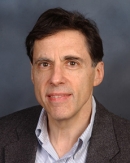Rosenzweig Receives Sun Yefang Award

Mark Rosenzweig, Frank Altschul Professor of International Economics, and Director of Economic Growth Center, was named a recipient of the prestigious Sun Yefang Economic Science Award for outstanding contributions to economic science. Considered one of China’s highest honors in the economics field, the prize was established in 1984 by the Sun Yefang Economic Science Foundation to commemorate its namesake, the distinguished Chinese economist Sun Yefang.
Rosenzweig and his coauthor, Junsen Zhang, Wei Lun Professor of Economics, Chinese University of Hong Kong, received the award for their article, ”Do Population Control Policies Induce More Human Capital Investment? Twins, Birth Weight and China’s ‘One-Child’ Policy.” The study, published in the July 2009 issue of the Review of Economic Studies, is one of three elected papers to receive the prize in the journal article category by a vetting committee made up of 29 economists from mainland China. The committee reviewed 75 literary works and 125 journal articles before making its final selections.
In their paper, Rosenzweig and Zhang address the issues of whether reductions in fertility increase human capital investments per child and whether twinning can identify the quantity—quality trade-off. The authors show that estimates of the effects of twinning at higher parities on the outcomes of older children in prior studies do not identify family-size effects but are confounded by inter-child allocation effects because of the endowment deficit and close spacing of twins. They also estimated, based on data from China, that an extra child significantly decreases the schooling progress, the expected college enrollment, grades in school, and the assessed health of all children in the family. Despite the evident significant trade-off between number of children and child quality in China, their findings suggest that the contribution of the one-child policy in China to the development of its human capital was modest.
Professor Rosenzweig’s research has covered a wide range of topics, including marital and fertility decisions, risk coping mechanisms, labor markets, human  capital decisions, the adoption of technologies, and the provision of local public goods. Rosenzweig is a Fellow of the Econometric Society, Fellow of the Society of Labor Economists, Fellow of the American Academy of Arts and Sciences, and Yangtze River Scholar. As director of the Economic Growth Center, he has recently overseen large-scale panel data collection projects.
capital decisions, the adoption of technologies, and the provision of local public goods. Rosenzweig is a Fellow of the Econometric Society, Fellow of the Society of Labor Economists, Fellow of the American Academy of Arts and Sciences, and Yangtze River Scholar. As director of the Economic Growth Center, he has recently overseen large-scale panel data collection projects.
Rosenzweig received a B.A. from Columbia College in 1969, and an M.A. and Ph.D. from Columbia University in 1971 and 1973, respectively. He began his career at Yale in 1973 as an assistant professor, and was appointed an associate professor in 1978 before leaving the university in 1979. He held professorships at the University of Pennsylvania, University of Minnesota, and Harvard before returning to Yale in 2005. He became the director of the Economic Growth Center in 2006.
This year marks the 17th Sun Yefang Award, and is given out biennially by the Chinese Academy of Social Science (CASS) to promote the prosperous growth of economic science. A ceremony to honor the recipients will be held in Shanghai in November. Notable past recipients include the Chinese Prime Minister Li Keqiang, and the governor of the People’s Bank of China Governor Zhou Xiaochuan.